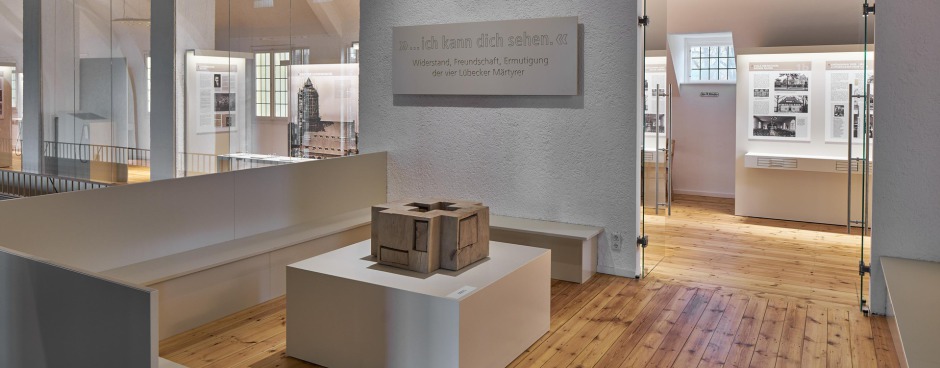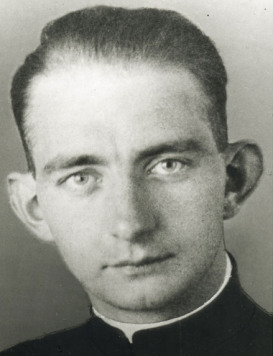First experiences as a priest
After his ordination in 1937, Prassek began his first position in Wittenburg/Mecklenburg. There he found very simple working conditions in the Diaspora. With his down-to-earth, warm and at the same
time charismatic appearance he won many sympathies. When he had to leave his position after one year due to illness, a church member wrote to the responsible Bishop Berning: “Give us back our
chaplain, popular with the Catholics and the Lutherans. Let us catch up with him with flags and wreaths with garlands, he was a man who pleased god.
As chaplain at the Sacred Heart Church
In 1939 Prassek started his position at the Sacred Heart Church in Lübeck. His superior was the 25-years-older, politically anxious and reserved dean Albert Bültel. Prassek gained a lot of affection
in the congregation with his friendly and open manner.
The chaplain had already learned Polish during his priest training and used this knowledge for pastoral counselling with forced labourers in Lübeck. Personal conversations with forced labourers were
strictly forbidden and therefore had to take place in secret.
Upright and veracious
He has always been an independent thinking and upright person. In discussion circles, religion classes and sermons he did not keep quiet about naming grievances and injustices. He was warned several
times that he would have to restrain himself if he did not want to get into trouble with the Gestapo. He is said to have replied: “Who else should tell the truth, if not the priests?” After Prassek
had met pastor Stellbrink in summer 1941, the two men became friends. Prassek introduced the Protestant somewhat to the Catholic diaspora of Lübeck.
At the same time, Johannes Prassek was also a determined and hands-on person. During the air raid on Lübeck at the end of March 1942, he was an imperturbable helper in the fight against the fire.



